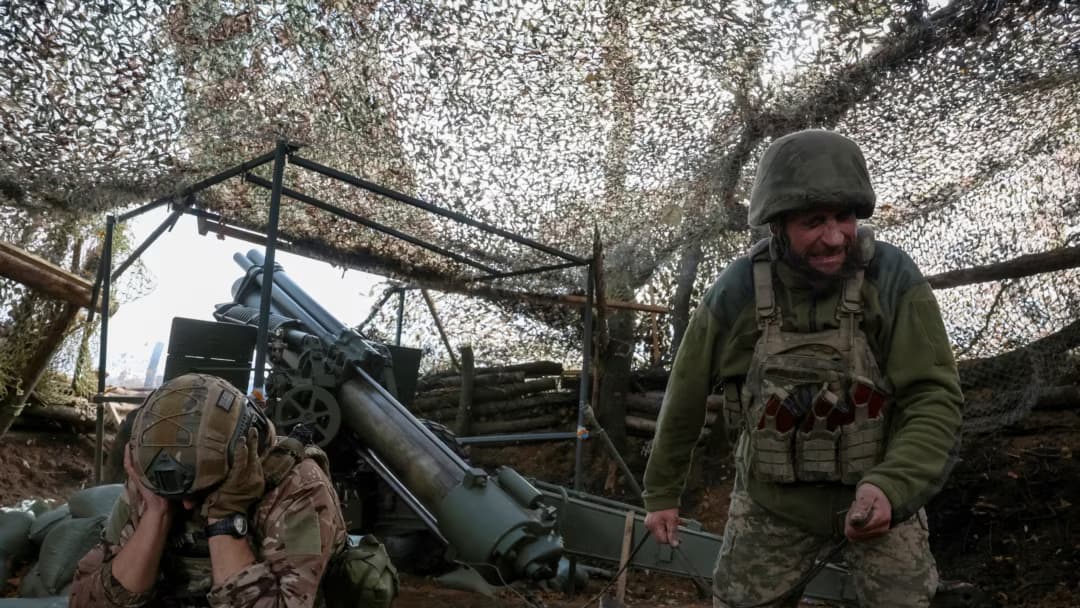We're loading the full news article for you. This includes the article content, images, author information, and related articles.
Intensified fighting for the strategic Ukrainian city threatens to deepen global grain and fuel price volatility, directly impacting Kenyan households and regional food security.

Ukraine's Commander-in-Chief, General Oleksandr Syrskyi, on Thursday, 30 October 2025, acknowledged a "difficult" situation in the key eastern city of Pokrovsk but firmly denied Russian propaganda claims that Ukrainian forces there have been blockaded. The statement, released via the Telegram messaging app, came a day after Russian President Vladimir Putin claimed his forces had surrounded Ukrainian troops in the strategic Donetsk region hub. The battle for Pokrovsk has escalated into one of the most critical engagements of the war, with its outcome poised to have significant military, diplomatic, and economic consequences that extend far beyond the frontlines, reaching into East Africa.
General Syrskyi confirmed he had visited the front to coordinate with commanders as Russian infantry groups intensify their push into the city's urban areas. He stated the primary objective for Ukrainian forces is to locate and destroy these infiltrating Russian units, which he said are avoiding direct, large-scale combat in favour of amassing within buildings and frequently changing locations. This assessment aligns with reports from military analysts and Ukrainian President Volodymyr Zelenskyy, who recently stated that Russian troops outnumber Ukrainian defenders by as much as eight to one in the sector, highlighting a severe manpower crisis for Kyiv. The fighting is now characterized by intense, small-arms firefights within the city itself, a shift from Russia's previous tactic of costly frontal assaults.
The battle for Pokrovsk, a vital road and rail junction, is not a distant conflict for Kenya. Its capture would be a major strategic victory for Russia, potentially enabling further advances to seize the remainder of the Donetsk region, one of Moscow's primary war aims. However, the immediate and tangible impact for Kenyans lies in the war's persistent disruption of the global economy. Escalation in a major logistics hub like Pokrovsk threatens the fragile stability of global supply chains, particularly for food and energy.
Russia and Ukraine are critical global suppliers of wheat, and the conflict has repeatedly caused volatility in grain markets. Any further disruption to Black Sea trade could trigger another surge in global wheat prices, directly increasing the cost of essential items like bread and flour for Kenyan families. This concern is compounded by the war's effect on global energy prices. Sustained, high-intensity conflict contributes to higher crude oil prices, which translates directly to increased fuel costs at the pump in Kenya, driving up transportation expenses and the overall cost of living. The World Food Programme (WFP) has previously relied on Ukrainian grain shipments to combat food insecurity in drought-affected parts of the Horn of Africa, including Kenya and Somalia; intensified fighting jeopardizes this crucial humanitarian lifeline.
The conflict also carries a direct human cost for Kenya. On Monday, 27 October 2025, Prime Cabinet Secretary Musalia Mudavadi confirmed that the Kenyan government is engaged in diplomatic negotiations with Moscow to secure the release of Kenyan citizens who were deceptively recruited into the conflict. This development brings the war's consequences directly to Kenyan soil, alongside the economic hardships. Diplomatically, Kenya has consistently advocated for the respect of territorial integrity at the United Nations, and the ongoing battle for Pokrovsk represents a further challenge to the international rules-based order that underpins the nation's foreign policy.
As Ukrainian forces work to strengthen defences and secure vital supply and evacuation routes under heavy Russian drone pressure, the international community watches closely. The defence of Pokrovsk is a test of Ukrainian resilience and the sustainability of Western support. For Kenyans, the outcome of this brutal battle will be felt not only in diplomatic forums but also in the prices paid for daily necessities, demonstrating the interconnectedness of global security and local economic well-being.
Keep the conversation in one place—threads here stay linked to the story and in the forums.
Sign in to start a discussion
Start a conversation about this story and keep it linked here.
Other hot threads
E-sports and Gaming Community in Kenya
Active 9 months ago
The Role of Technology in Modern Agriculture (AgriTech)
Active 9 months ago
Popular Recreational Activities Across Counties
Active 9 months ago
Investing in Youth Sports Development Programs
Active 9 months ago